what is the cost of solar street lights | Queneng Guide
What is the Cost of Solar Street Lights?
Understanding the true cost of solar street lights is crucial for professionals in the solar lighting industry. This involves more than just the upfront purchase price; it encompasses installation, maintenance, and long-term operational expenses. Let's break down the factors influencing the final cost.
Factors Affecting the Cost of Solar Street Lights
Several key factors significantly impact the overall cost of a solar street lighting project. These include:
* System Size and Capacity: Larger systems with higher lumen output and longer operational hours naturally cost more. The number of lights needed for a particular area directly influences this. High-lumen solar street lights will inevitably command a higher price than lower-lumen models.
* Battery Capacity and Type: The battery's capacity determines the system's autonomy (how many cloudy days it can operate without sunlight). Lithium-ion batteries, while offering superior performance and lifespan, typically cost more than lead-acid batteries. This represents a key trade-off between upfront cost and long-term operational efficiency.
* Pole Height and Material: Taller poles require more robust construction and installation, increasing costs. The material used (steel, aluminum, etc.) also influences pricing. The height and material selection are closely related to the overall project design and application requirements.
* Installation Complexity: The terrain, accessibility, and existing infrastructure affect installation costs. Difficult-to-reach locations or areas requiring extensive groundwork will increase labor expenses. This is a significant variable and needs careful assessment in any project budget.
* Features and Technology: Added features, such as smart controls, remote monitoring, and integrated sensors, add to the initial investment. However, these features can also lead to reduced energy consumption and improved operational efficiency over the long term. Advanced technologies, such as smart solar street lights, are becoming increasingly sought after.
Beyond the Initial Purchase: Ongoing Costs
It's essential to consider ongoing costs beyond the initial investment in solar street lights. This includes:
* Maintenance: Regular maintenance, including cleaning solar panels and replacing batteries, is necessary to ensure optimal performance and extend the system's lifespan. Planning for these costs is crucial for a realistic budget.
* Warranty and Service Contracts: Extended warranties and service contracts provide peace of mind but contribute to the overall cost of ownership. These are important considerations when comparing different solar lighting solutions.
* Replacement Costs: Eventually, components will need replacing. Budgeting for these replacements, particularly batteries, should be factored into the total cost of ownership. This relates directly to the expected lifespan of components.
Conclusion
Calculating the cost of solar street lights requires a holistic approach considering all factors. Working with experienced providers like Queneng ensures a transparent and accurate cost assessment, optimizing your project for both immediate and long-term value. Don't hesitate to contact us for a customized cost estimate.

Have more questions about our products or services?
The latest hot news you might like
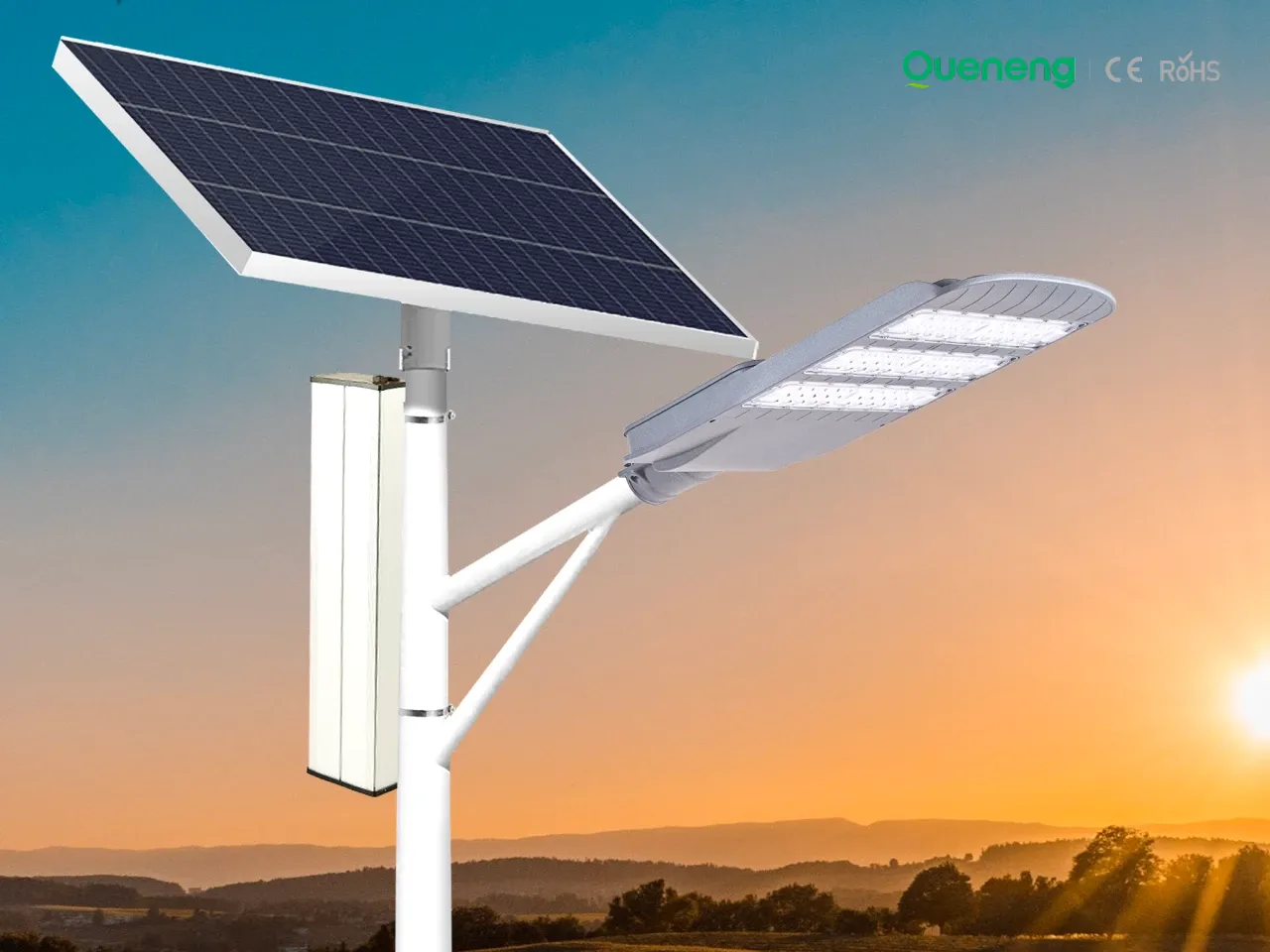

A comprehensive 2026 guide to solar street light pricing. Covers commercial installation costs, LiFePO₄ battery trends, smart IoT features, and a detailed ROI comparison against traditional grid lighting.

A comprehensive 2026 outlook on integrated solar street lights, featuring performance benchmarks like bifacial panels, LiFePO₄ batteries, and Smart City IoT integration for maximum ROI.

Discover how solar panels power street lights, exploring the technology behind solar energy conversion, storage systems, and how solar-powered street lights are revolutionizing urban and rural lighting solutions.
FAQ
Industry
If the battery capacity decreases, does Queneng offer replacement services?
Yes, we offer long-term maintenance support for all solar systems, including battery replacements and system upgrades to ensure ongoing high performance.
Does installing Queneng’s solar street lights require a professional team?
While our systems are designed for easy installation, we recommend having our professional team conduct the installation to ensure optimal operation and correct system setup.
Battery Types and Applications
What are the voltages and usage areas of different types of batteries?
Lithium battery 6V camera, etc.
Lithium manganese button battery 3V pocket calculator, watch, remote control equipment, etc.
Silver oxygen button battery 1.5V watches, small clocks, etc.
Carbon manganese round battery 1.5V portable video equipment, cameras, game consoles, etc.
Carbon manganese button battery 1.5V pocket calculator, electric equipment, etc.
Zinc carbon round battery 1.5V alarm, flash light, toys, etc.
Zinc air button battery 1.4V hearing aids, etc.
MnO2 button battery 1.35V hearing aids, cameras, etc.
Nickel-cadmium battery 1.2V power tools, mobile phones, notebooks, emergency lamps, electric bicycles, etc.
Ni-MH battery 1.2V mobile phones, portable cameras, cordless phones, notebooks, household appliances, etc.
Lithium-ion battery 3.6V mobile phones, notebook computers, etc.
Public Gardens and Landscape Lighting
What happens if the solar light is not working properly?
If your solar light is not working properly, it could be due to a variety of reasons, such as dirt on the solar panel, insufficient sunlight, or battery issues. We recommend cleaning the panel and ensuring it receives enough sunlight. If the problem persists, please contact our customer service team for troubleshooting assistance.
How much sunlight do solar lights need to function properly?
Solar lights typically require 6-8 hours of direct sunlight during the day to charge fully and provide 8-12 hours of lighting during the night. However, our high-efficiency solar panels are designed to maximize energy capture even in less-than-ideal sunlight conditions.
Solar Street Light Luhui
Can Luhui solar street lights be controlled remotely?
Certain models of Luhui solar street lights come with smart control features, allowing users to remotely monitor and adjust settings such as brightness levels and operational times via mobile apps or centralized systems.

The Solar Streetlights of Luhao for Municipalities are designed to deliver reliable, energy-efficient, and cost-effective public lighting solutions. Equipped with advanced LED technology, durable lithium batteries, and high-efficiency solar panels, these streetlights provide consistent illumination for roads, parks, residential areas, and government projects.
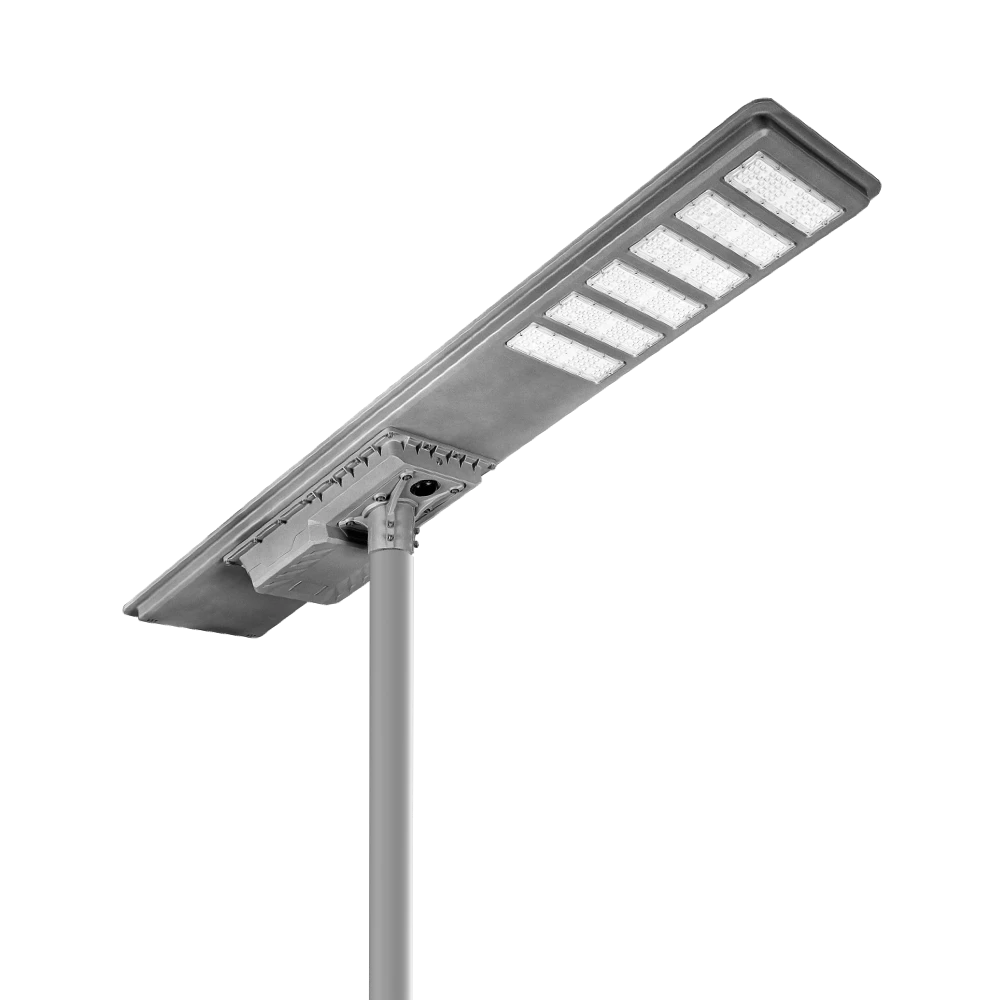
Queneng's Luqiu Innovative Solar Street Light offers energy-saving, durable outdoor lighting. This solar power street light provides a reliable and eco-friendly solution for illuminating your streets and pathways.
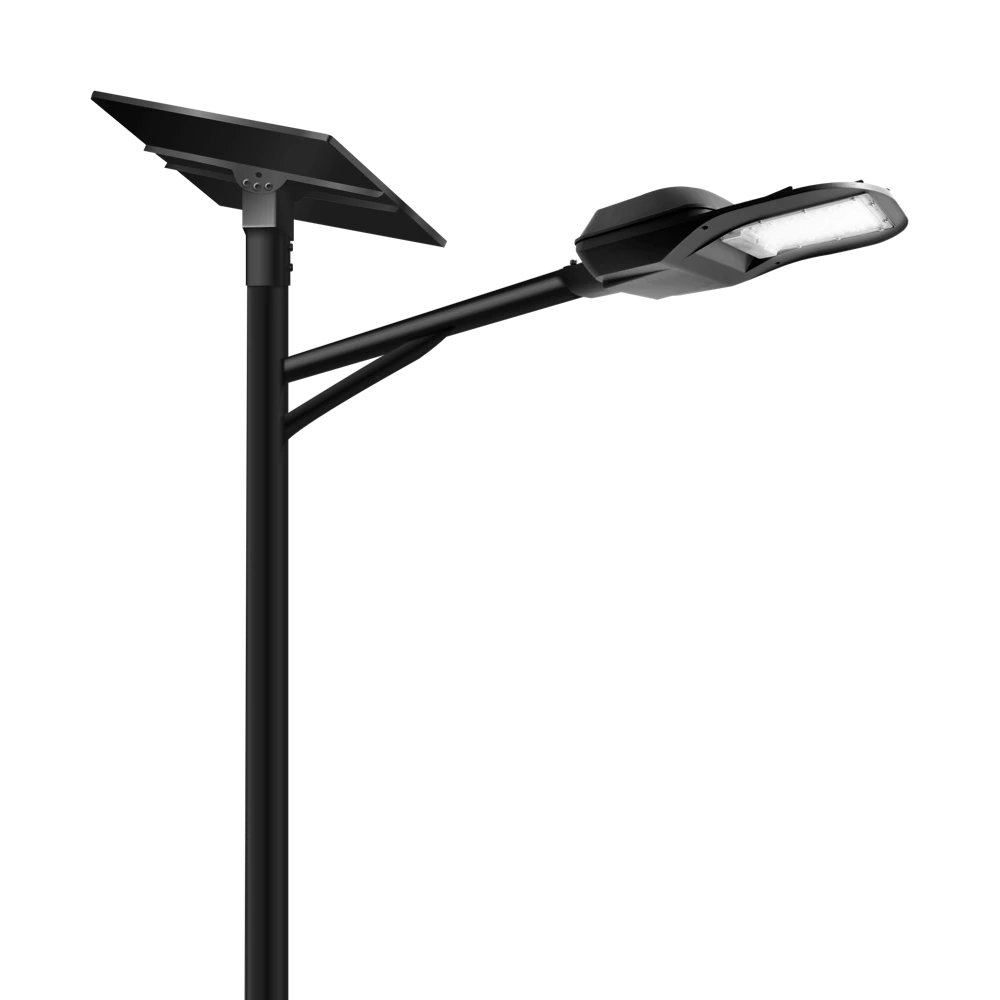

Lubai is an integrated solar street light designed for stable, long‑term outdoor lighting in off‑grid and weak‑grid areas. Combining a high‑efficiency solar panel, LiFePO₄ battery, and intelligent motion sensing, Lubai delivers reliable illumination with low maintenance and fast installation.
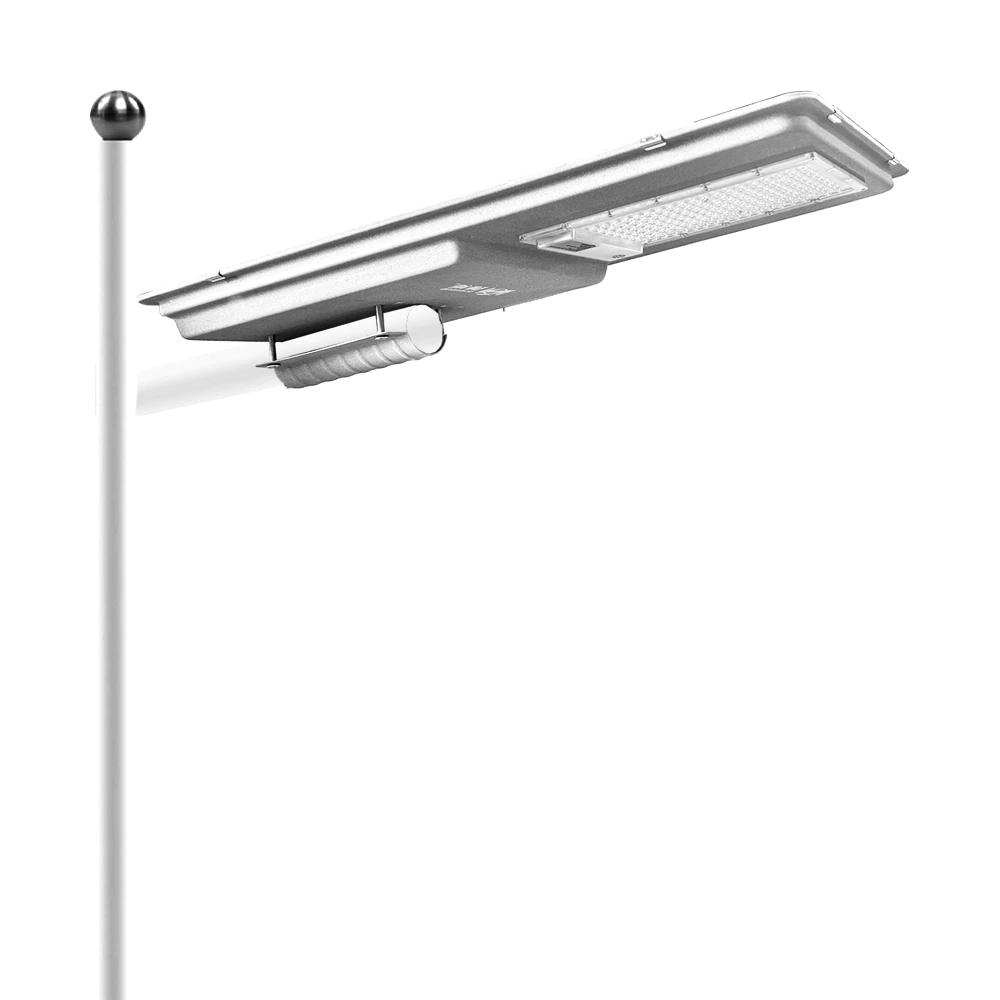
Queneng's Lufa high-efficiency solar LED street lights illuminate urban and commercial spaces brilliantly. These commercial solar LED street lights offer superior energy savings and reliable performance, making them an ideal sustainable lighting solution.
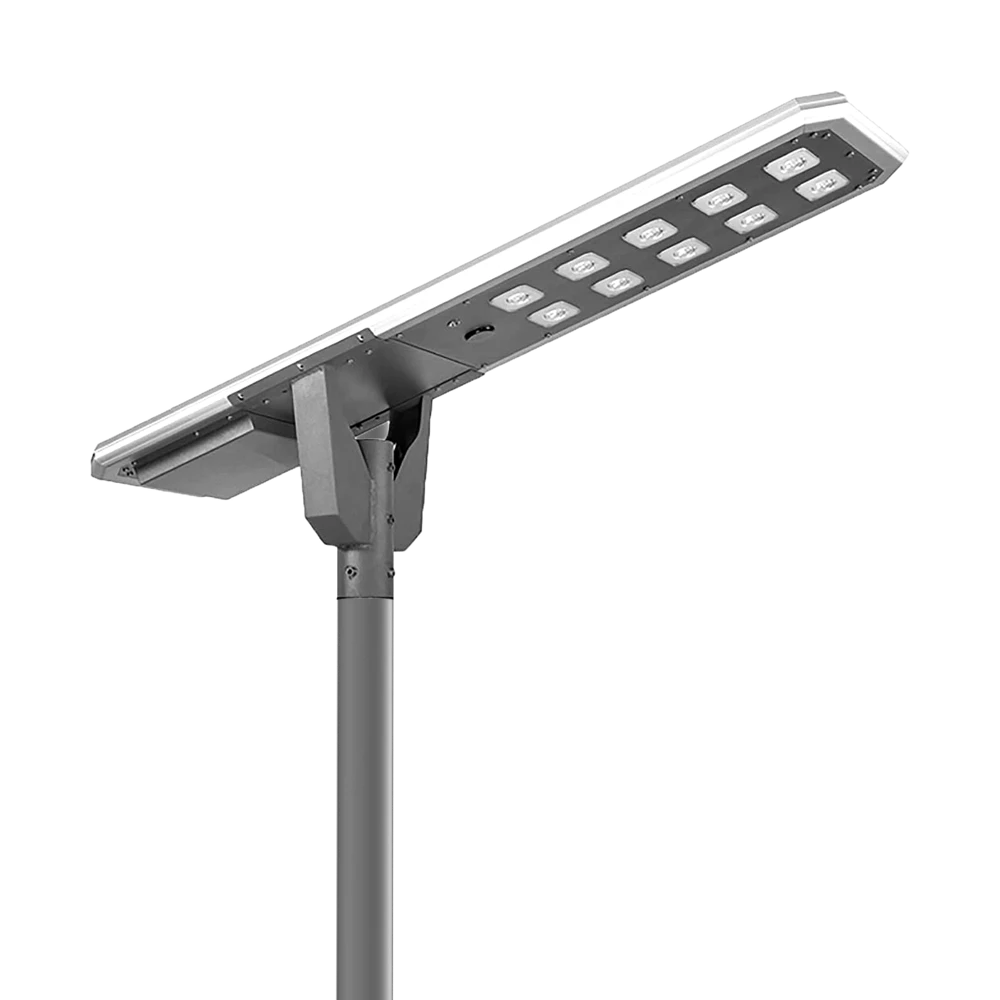
Illuminate your outdoor spaces with the Solar Street Light, a cutting-edge solution combining advanced solar technology and energy-saving LED lighting.
If you would like more information about Queneng solar lighting solutions, please send us a message by filling out the form below. Our professional team will get back to you within 24 hours!
Rest assured that your privacy is important to us, and all information provided will be handled with the utmost confidentiality.
Schedule a Meeting

Book a date and time that is convenient for you and conduct the session in advance.
Have more questions about our products or services?





















